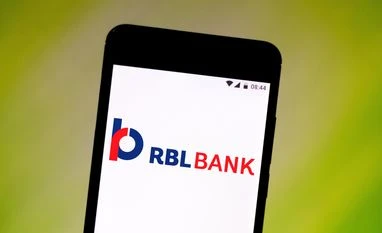Private sector lender RBL Bank and consumer financier Bajaj Finance have mutually decided to cease the issuance of co-branded credit cards under their partnership, as the synergies initially envisioned have undergone significant changes, the bank notified the exchanges on Friday.
RBL Bank partnered with Bajaj Finance in 2016 to issue co-branded credit cards for a period of five years. The partnership was renewed for another five years in 2021.
"As a strategy, we want to have a diversified origination channel. When we were scaling up, we were acquiring about 200,000 to 250,000 cards per month, but we’ve reduced this to 100,000 per month due to our own priorities of doing more with customers than just a card. This, coupled with a challenging environment surrounding unsecured retail, meant incremental sourcing was reduced. With an overall base of more than 5 million cards, the strategic need for this partnership has diminished. Therefore, this is a logical outcome for both parties," said Jaideep Iyer, Head - Strategy, RBL Bank.
The cards issued to date – around 3.4 million – will continue to be serviced by the bank. "RBL Bank will continue to service the existing portfolio of approximately 3.4 million co-branded credit cards issued under this partnership while ensuring seamless support and customer satisfaction across all its service channels," the bank said.
According to the bank, cardholders of RBL-Bajaj Finance co-branded credit cards will continue to be customers of RBL Bank and can continue to use their cards on the same terms and conditions as at the time of issuance of such cards.
Additionally, the private sector lender has assured the cardholders that they will enjoy the same benefits, rewards, offers, etc., associated with their existing cards. However, upon renewal, these cards will be reissued as RBL Bank-branded credit cards.
In the July-September quarter, RBL Bank faced higher slippages from the credit card segment, owing to the impact of the changeover of collection services from their co-brand partner. In July, the bank decided to move the collection process in-house. RBL Bank reported a 24 per cent decline in net profit as overall provisions shot up due to elevated stress in the credit card and microfinance portfolios.
More From This Section
In its Q2 analyst call, the bank had mentioned that, for the past one and a half years, it has been working to reduce its reliance on a large co-branded partner in the credit card segment. Previously, over 60-70 per cent of card acquisitions were coming through the Bajaj Finance channel. However, by Q2, this had been reduced to 36 per cent, with the remainder of acquisitions coming organically.
“Over the last 18 months, RBL Bank has significantly expanded its credit card issuance capabilities through both direct channels and new co-brand partnerships. The bank has minimized its dependence on the origination of co-brand cards with Bajaj Finance over the last year, from 126,000 in September 2023 to 37,000 cards in September 2024,” the bank said in the exchange notification.
Additionally, the bank has said that its decision to end the partnership with Bajaj Finance is in line with its plan to build a diverse range of partnerships, including with NBFCs such as Mahindra & Mahindra Finance, TVS Finance, as well as consumer brands like IOC and IRCTC.
“The bank remains focused on growing its credit card business as a prominent customer acquisition engine,” the bank said, adding that the RBL-Bajaj Finance co-brand has been one of the largest and most rewarding co-brand relationships in the country.
Latest data suggests RBL Bank’s outstanding credit cards stood at 5.17 million as of October.
)